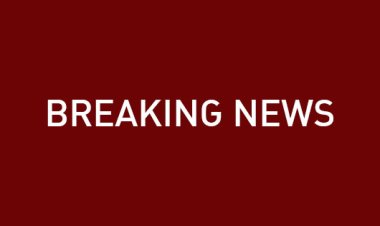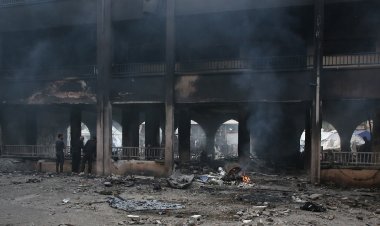Netanyahu states at the UN that Israel must keep battling Hezbollah, as they have 'no choice'
The Israeli prime minister criticized the United Nations as a "contemptuous farce," responding to scrutiny regarding Israel's actions in Gaza.

His comments, or the absence of certain details, at the U.N. General Assembly could jeopardize efforts led by the U.S. and France to halt the fighting and may further irritate Western officials already frustrated by Netanyahu's inconsistencies.
"As long as Hezbollah chooses the path of war, Israel has no choice," Netanyahu stated. "Israel has every right to remove this threat and return our citizens to their homes safely, and that’s exactly what we’re doing."
In the past 48 hours, Netanyahu's position on the ceasefire proposal has been unclear. Initially, he dismissed it outright, stating he “did not even respond” to the suggestion, implying he would not agree to cease hostilities. However, representatives from the Biden administration countered his dismissal by revealing that Israel's government had privately shown support for the proposal, which was a key reason for its introduction by the U.S. and France.
Just hours before his U.N. speech, Netanyahu's office issued a statement that somewhat softened his earlier rebuff, asserting that “Israel shares the aims of the U.S.-led initiative.”
Following his address, explosions erupted in Beirut as the Israel Defense Forces reported targeting Hezbollah's command centers located beneath residential buildings.
Netanyahu's inconsistent messaging is partly due to his fragile political situation. His leadership relies on far-right coalition partners who demand firm responses to Israel’s enemies. Deviating from their stance could threaten his government and increase his vulnerability to corruption allegations. Concurrently, a significant portion of the Israeli populace supports a decisive defeat of Hezbollah.
This pattern of behavior has been seen previously during Israel's ongoing conflict with Hamas in Gaza, where Netanyahu has conveyed different messages to U.S. officials privately than what he publicly acknowledges. For instance, following President Joe Biden's introduction of a multi-tiered peace proposal for Gaza earlier this year, Netanyahu denied responsibility for the plan.
A spokesperson for the White House National Security Council has not yet responded to a request for comments regarding the ongoing situation.
At the United Nations, Netanyahu encountered a challenging crowd. Many countries present voiced criticism over Israel's actions in Gaza as the humanitarian situation deteriorated. Throughout the week, numerous world leaders at the U.N. General Assembly condemned Israel's actions, with some also placing blame on Hamas and issuing broad calls for an end to escalating hostilities in Lebanon.
As Netanyahu commenced his speech, dozens of diplomats exited the room, resulting in a significantly empty General Assembly floor. However, he was accompanied by supporters, including families of hostages, who cheered during his address.
Their loud support led to a moment where UNGA President Philémon Yang had to interject, saying, “Order, please! Ladies and gentlemen, order!”
Confronting the criticism directed at Israel, Netanyahu defiantly compared current events to the Holocaust. "We see this moral confusion when Israel is falsely accused of genocide," he remarked. "We will fight until we achieve victory, total victory. There is no substitute for it."
He also directed criticism towards the U.N., labeling the institution an antisemitic "contemptuous farce."
On October 7, Hamas militants launched an assault on southern Israel, resulting in the deaths of 1,200 people and triggering a significant retaliatory campaign from Israel that has led to tens of thousands of fatalities in Gaza. The following day, Hezbollah initiated rocket fire into northern Israel, prompting many residents to evacuate that area.
Until recently, the Israeli-Hezbollah confrontation had been relatively contained until Israel decided it could no longer accept a tangible loss of territorial sovereignty in the north.
As Israel intensified its military operations against Hezbollah through air strikes that have resulted in hundreds of casualties, along with other attacks leading to numerous injuries, the U.S. and its allies have sought to prevent the conflict from escalating further.
The primary concern for the U.S. over the past year has been the potential for the situations in Gaza and northern Israel to draw in Iran, which supports both Hezbollah and Hamas, risking the outbreak of a larger regional war. Such a development could necessitate a more direct military involvement from the U.S. should Israel require assistance.
Ramin Sohrabi for TROIB News












